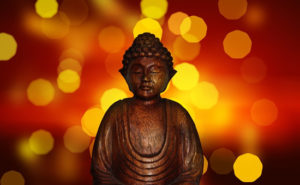
The Buddha in his sermons on various occasions pointed to the importance of building a healthy and healthy life. Therefore, Buddhism is considered as the greatest of all profits in the world. The Supreme Buddha has stated in the great Sasapura Sutra of the Majkdimanika:
“Sir, this is the view of a man who has a disability. The pain caused by it is so severe that he does not have any food or appetite. I have been sick before, I have suffered from it, I have been swallowed up. succession. The Buddha has stated here the difficulties that a person may suffer from a sickness and the benefits that come from it.
According to the Magandi Sutta, the Buddha has said what is true health? One day, the Lord Buddha met him and said, “Hello Parama Laba, Nibbanaan Paraman Sukang”. Magadhiya came to appreciate the idea and declared to the Buddha that his lecturers had said so. The Buddha asked him, “Brahman, what does it mean to be healthy?” The Brahmana said, “Brahman, in this sense, is inferior to his own body. Blessed, this is what it is. This is the Nirvana, it is said: Dear Gautama, I am healthy and healthy now and I am not suffering from any disease. ” The Buddha preached that the idea was false. He explained what it means to be healthy in the Aryan discipline. “The body was a disease, a lump, a hollow, a ruin. It was a sickness
This body, which is a disease, a lump, a hull, a ruin, a sickness, is healthy to get rid of. Nirvana. Myself. ” Thus, the idea that Buddhism is healthy means a very broad meaning. In Buddhism, it is said that a person who is sick should always remember that it is not about being sick but about being healthy. Therefore, it is not possible to get rid of it because you think that you are constantly sick. One must try to meditate on what is healthy. It is worth the effort. The Supreme Buddha preached in the Anguttara Nikaya Disease Sutra that some people in this world can live without physical ailments for many years, but that they cannot spend any time without mental illness. Health is one of the things that most people in the world think, like, like, and love. Buddhism has many ideas on how to be healthy.
There are three parts to the Buddha’s discourses on what should be the key to good physical health. It is about meeting basic needs, avoiding unnecessary things, and adopting favorable behavior. Humans can maintain their health only if they have basic necessities such as food, clothing, medicine and shelter. Therefore, it is very important to meet these basic requirements when developing physical health. The Buddha’s vision states that “Sabbe Sathya Dhamtattika” is a food for every animal in the world. Therefore, medicines alone are not sufficient for a place that does not have basic necessities such as food, shelter, clothing, etc. Therefore, Buddhism recommends that it is important to focus on meeting these basic needs first.
A person who wishes to safeguard his physical health must constantly abstain from unhealthy behaviors and harmful environments. What suits him, not what suits him
It should be understood. If one consciously consumes inappropriate food and drink, travels to inappropriate places, associates with improper sinners, and acts degraded, his physical well-being and life are ruined. The Buddha thus pointed out that the things that are detrimental to the life of the person, harmful persons, and places of harm should be avoided.
In his sermon, the Buddha explained that it is also the reason for adopting the appropriate behavioral patterns to improve one’s physical fitness. Thus, as taught in Buddhism, it is important to abstain from the practices that are to be avoided and to follow the practices that should be practiced. Maintaining physical cleanliness is key to maintaining physical fitness. Cleanliness has a great effect on body health. It is important to keep the skin, nose, mouth and hair as well as external clothing clean. In Buddhist thought, the moral impurity of a person is reflected in the external corruption of the person. In this way, Buddhism sees a significant relationship between moral and physical impurity. Therefore, it is possible to draw conclusions about a person’s moral impurity through the impurity exhibited by someone.






